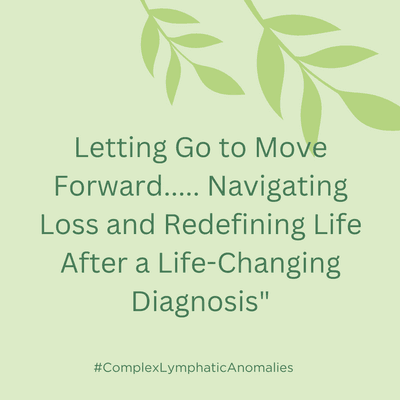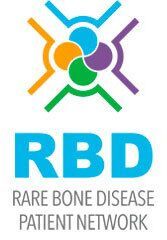
Living with a rare condition like Complex Lymphatic Anomalies (CLA) often requires adapting to various life changes and facing different kinds of losses. The type and extent of these adjustments can vary greatly among individuals, but learning to recognize and accept them is crucial for emotional and practical well-being.
The Nature of Change
Change is constant in the lives of those with CLAs. Some changes are immediate, while others emerge gradually over time. Here are a few of the common changes faced by people living with CLAs:
- Shifts in personal relationships
- Adjustments in family life or parenting
- Changes in finances
- Modifications to the home or living arrangements
- Alterations to work or career
- Physical changes, whether in appearance or ability
Recognizing these changes as they come up is the first step in managing their impact, both for yourself/your child and for those around you.
Emotional Reactions to Change and Loss
When change is imposed on us, as is often the case with CLA, it can bring about a range of feelings. There is no single “right way” to respond, and each person’s experience is unique. Some may feel:
- Angry, resentful, or stressed
- Anxious or agitated
- Sad or tearful
- Low energy, withdrawn, or exhausted
- Forgetful or unable to focus
- More prone to physical symptoms like headaches or stomach upsets
- Unusually tired or unable to sleep
Acknowledging these emotions as part of a grieving process can be helpful. Grief for CLA patients isn’t just about traditional loss but encompasses all the changes to daily life, health, and relationships.
Types of Change and Their Impact
Changes can be sudden or gradual. In some cases, life can feel stable for a long period, only to shift unexpectedly, creating a sense of instability. Gradual changes, on the other hand, may go unnoticed until something, or someone, calls attention to them, potentially triggering an emotional response.
For those with CLA, sudden changes—especially health-related—can feel like experiencing the initial diagnosis all over again. Having an action plan in place with your healthcare team can help prepare you for these situations and ease some of the accompanying stress and uncertainty.
Dealing with Trauma
Living with CLA can sometimes lead to traumatic experiences, including events that feel overwhelming or distressing. Trauma can result from:
- Situations where needs were ignored
- Witnessing someone in pain or distress
- Unpredictable, sudden changes
- High-complexity caregiving with limited support
- Repeatedly assisting a child with medical procedures
Recognizing the effects of trauma can be challenging, but symptoms may include flashbacks, nightmares, avoidance behaviors, or feeling constantly on edge. Coping strategies for trauma include grounding exercises, connecting with a supportive person, and taking time to process the event before seeking professional help.
Complex Trauma
For many, the impact of CLA is an ongoing challenge, contributing to what’s known as “complex trauma.” Unlike event-based trauma, complex trauma arises from prolonged exposure to difficult or unavoidable situations. This can include pain, medical interventions, or facing stigma. In these cases, finding a supportive network or working with a mental health professional can help manage the effects of this unique type of trauma.
Coping with Change and Loss
Managing change and loss takes time, and there will be days when acceptance comes more easily than others. Consider these strategies for navigating difficult feelings:
- Talk to a trusted friend or family member
- Write or draw to express emotions
- Allow yourself moments to cry, shout, or otherwise release stress
- Learn skills like mindfulness and relaxation
- Join a peer support group [link to FB group]
- Connect with a psychologist or counselor
It can be helpful to think of yourself as a surfer adjusting to waves. Living with CLA means facing unpredictable challenges, but each experience builds resilience, giving you confidence in your ability to adapt.
Keeping Room for Hope
Uncertainty about the future can fuel fear, but it can also allow space for hope. Many find that even difficult situations are more manageable than they had anticipated. Trust that you’ll adapt and cope, and that there may be bright spots along the way.
For more personal insights on coping with a rare disease, you may find inspiration in Emily’s article on “How Reiki, Spirituality, and Faith Help Me Accept Life With complex lymphatic anomaly.” Emily kindly shared her story with Rare Revolution Magazine earlier this year.
For more mental well-being resources check out Rareminds and Rare Counselling






